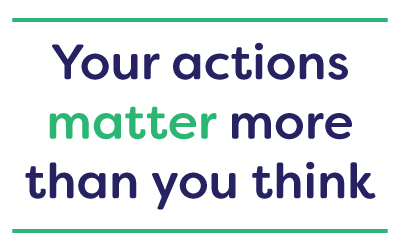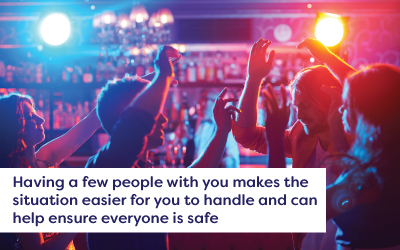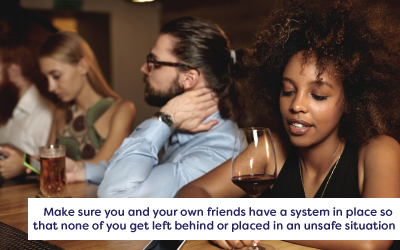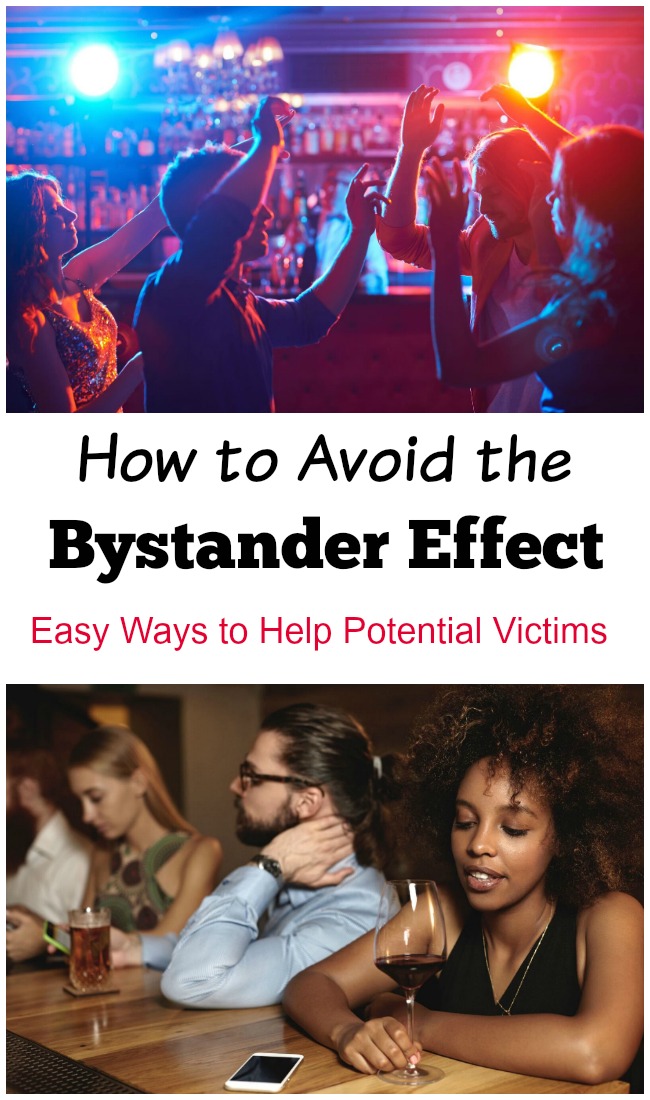The Bystander Effect and Sexual Assault: How to Help or How to Avoid the Bystander Effect and Help Victims
We’ve all heard of the bystander effect . It’s when people don’t offer any help to a victim who is in distress, when other individuals are around. It happens all the time. You’ve possibly even been a part of this effect and not even known it.
Why does it happen? Sometimes, we think someone else is going to help, or other times, we don’t realize the gravity of the situation. People also don’t like to be intrusive - they’re afraid they’re over-stepping the line. Lastly, people often just aren’t sure how to respond.

When someone is in distress, uncomfortable with a situation, or in harm’s way, we need to make sure we do whatever we can to help. When it comes to instances of sexual assault or domestic violence, there are always ways in which bystanders can help. Preventing sexual assault and domestic violence is up to all of us.
Your actions matter more than you might think.
Stepping in to help can be done in many ways and may even be a simple action, including:
- Asking security at a venue for help if someone is acting aggressively or in a way that is making others uncomfortable
- Ensuring you don't leave a friend alone at a party or a bar
- Speaking up when someone tells a rape joke
- Making up an excuse to help get a friend away from someone who might pose a danger
- Calling the police or authorities
Most times, you don’t need to make a big scene or put yourself in danger in order to help. Also, if there’s ever a situation that you feel is dangerous for either you or the person involved, it’s important to call the police.
The bystander effect occurs frequently in scenarios of sexual assaults, especially among young people. Many sexual assaults in college or university settings occur at events where there is alcohol, like parties or a bar.
There are often people around who have the opportunity to assist the victim or diffuse the situation, but this doesn’t always happen.
Also, it’s important to remember that rape is not always violent. This is a misconception. It is still considered rape if someone is very intoxicated and not able to properly consent.
Having just one person speak up can create a positive effect from others who are willing to help.
Focusing sexual assault prevention on ideas like having a buddy system, never walking alone, and not drinking too much are good, but they also place the responsibility entirely on the victim. Bystanders have a very important and unique position in which they can also help prevent assaults and stop behaviour that can easily escalate.
Here are some tips on how you can get past the bystander effect and help a potential victim before the situation escalates.
How to Help - Preventing the Bystander Effect
1. Create a Distraction - There are many ways in which you can create a distraction to help a victim. Cut off the conversation or offer the person you’re concerned about a way out, perhaps by joining in an activity or getting something to eat or drink. You can turn on the lights at a party or stop the music, or if you’re at a bar, form a dancing line to pull away an aggressor or the person whom is being harassed. The most important thing is to stop the behaviour before it escalates.
2. Get Others to Help - Grab a few friends to help you if you’re feeling a bit intimidated. Having a few people with you makes the situation easier for you to handle and can help ensure everyone is safe. If possible, you can ask the friends of the person you’re concerned about to check on them or escort them to the bathroom to make sure they’re okay.

3. Talk to the Person Directly - Ask the person you’re concerned about direct questions if possible, like who they came with, if they’re comfortable, or if they would like you to stay with them. You can also ask if they’d like you to call them a safe ride like a cab or family member, and stay with them until their ride arrives.
4. Keep an Eye on Your Own Friends - You might not think that someone you know could be the aggressor, but it can happen. If you notice someone you’re friends with bothering a women or making her feel very uncomfortable, you can help by getting him to leave the situation before his behaviour escalates from drunken behaviour to worse. Also, make sure you and your own friends have a system in place so that none of you get left behind or placed in an unsafe situation. Many campus sexual assaults, for instance, occur after the victim has been separated from her friends.

5. Get the Authorities Involved - Don’t put yourself in a situation where you feel unsafe. If you’re out at a bar or other event, seek help from a security guard. You can also call the police if you’re worried about a potential victim or something appears to be escalating. It’s always better to do something than nothing at all.
6. Trust Your Gut - If you ever feel uncomfortable with a particular person, trust your gut and remove yourself or others from the situation. Enlist the help of others if need by or inform a security guard or a police officer.
Above all, don’t be a passive bystander.

